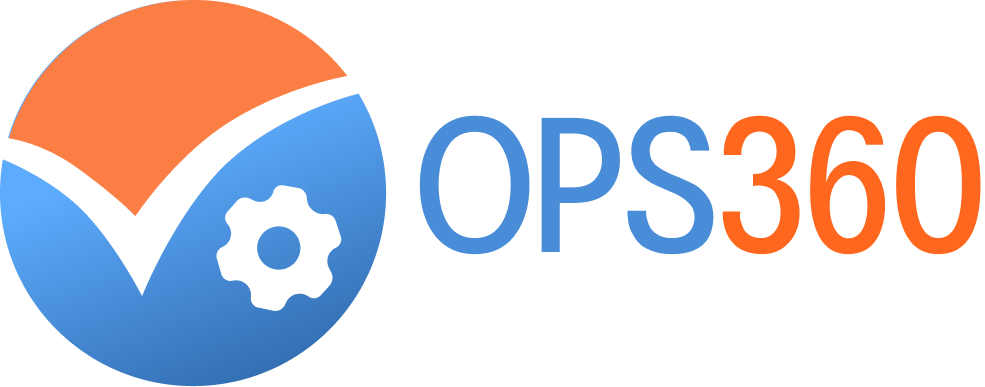In the golden glow of a Santorini sunset, a guest checks into a boutique hotel with just eight rooms. She booked it last-minute—and paid nearly double the price her friend did a week ago. Is this unfair? Or just smart business?
Welcome to the world of revenue management, where data meets demand, and pricing isn't guesswork—it's strategy.
The Hidden Engine Behind Hotel Profits
For the average guest, hotel pricing often feels like a mystery. Why does the same room cost ₹3,500 on Monday and ₹9,000 on Friday? But behind the scenes, there's a carefully calculated dance happening—balancing supply, demand, market behavior, and timing.
At its core, revenue management is about selling the right product to the right customer at the right time for the right price.
And when done right, it can turn even a struggling property into a profit powerhouse.
Many hotels are now combining revenue intelligence with operational efficiency using platforms like OPS360 by Delisys—an all-in-one tool that helps monitor, plan, and automate property workflows while aligning them with pricing strategies.
Case in Point: The Story of a Goa Beach Hotel
Let me tell you about a mid-size family-run hotel in North Goa. In 2019, they were barely breaking even—often offering flat rates through the year, not adjusting for off-season or peak-season trends. They relied heavily on OTA bookings, which ate away a chunk of their profits through commissions.
Enter a consultant who introduced basic revenue management principles:
- Analyzing historical booking data
- Introducing dynamic pricing
- Segmenting the audience into weekend tourists, foreign travelers, and walk-ins
- Allocating rooms differently across platforms based on demand trends
Within a year, the hotel saw a 23% increase in RevPAR (Revenue per Available Room).
They also began using OPS360 to streamline front desk operations, track real-time occupancy, and manage task assignments. That freed up staff time to focus on guest experience—and respond faster to shifts in booking trends.
The owner now jokes, "We didn't change our rooms—just our mindset."
The Magic of Timing: An Anecdote from a City Hotel
Picture this: A large tech conference is about to take place in Bengaluru. Most hotels nearby are already booked out. One smart business hotel, rather than opening all its inventory early, releases rooms in phases, steadily increasing the price as the date approaches and demand peaks.
Result? They filled up last—but earned the most per room.
Using tools like OPS360, they had access to centralized dashboards, booking trend alerts, and communication modules that allowed sales and ops teams to act fast and stay coordinated.
That's the power of demand forecasting—a key element of revenue management that separates reactive hotels from proactive ones.
Revenue Management Is More Than Just Pricing
Many assume it's just about charging more. But good revenue management isn't price gouging—it's about understanding patterns, offering value-based pricing, and ensuring your pricing feels fair, strategic, and transparent.
Here are the pillars of a strong revenue strategy:
1. Data-Driven Decision Making
From average length of stay to booking windows, understanding customer behavior helps set intelligent rates. It's not just "more for weekends"—it's how much more, and for whom?
2. Customer Segmentation
Tailor experiences. Adjust pricing and packages accordingly.
Platforms like OPS360 allow hotel teams to tag customer profiles, group them by visit frequency, and even automate upsell offers for specific guest types—all without switching between multiple tools.
3. Channel Management
Selling across OTAs (like Booking.com), your own website, walk-ins, and travel agents? Each platform has different costs and benefits. Smart hotels manage inventory to prioritize high-margin channels.
4. Technology as an Enabler
Tools like Duetto, IDeaS, and even simple PMS solutions help—but when paired with an operational backbone like OPS360, they become even more effective.
OPS360 integrates seamlessly into your hotel's daily workflow—think staff shift logs, maintenance tracking, guest requests, and compliance—all under one intuitive dashboard. For revenue managers, this clarity is gold.
From Theory to Thriving: The Marriott Model
Marriott International has long been a pioneer in revenue management. They developed one of the first automated pricing systems in the hospitality industry.
During the 2008 financial crisis, they:
- Held firm on rates during high-demand events
- Focused marketing on loyalty members
- Optimized room allocation across segments
Their resilience paid off. Post-crisis, they bounced back faster than competitors.
The takeaway? Price smart, not low. And align pricing with operations—a philosophy newer tools like OPS360 are designed to support.
It's About People, Not Just Profit
Revenue management is not just math. It's hospitality math. It still revolves around guest satisfaction.
Let's say a guest is a repeat customer who tends to book mid-week and spend on in-room dining. A smart hotel might:
- Offer a loyalty-based discount
- Assign preferred rooms automatically using an integrated tool like OPS360, which syncs guest profiles with housekeeping and front desk teams
Because a happy guest who feels valued is more profitable than ten one-timers.
Final Thoughts: Where Art Meets Algorithm
Whether you're running a heritage homestay in Darjeeling or a 200-room property in Hyderabad, embracing revenue management is about using intelligent insight to fuel intuitive hospitality.
Yes, it's science—data, systems, models.
But also art—knowing what your guest values and pricing accordingly.
And with tools like OPS360 by Delisys, you're not just pricing smart—you're operating smart. One platform. Multiple properties. Total control.
Because at the end of the day, hospitality isn't about selling a room—it's about creating an experience. Revenue management ensures that you can keep doing that—profitably, sustainably, and smartly.
